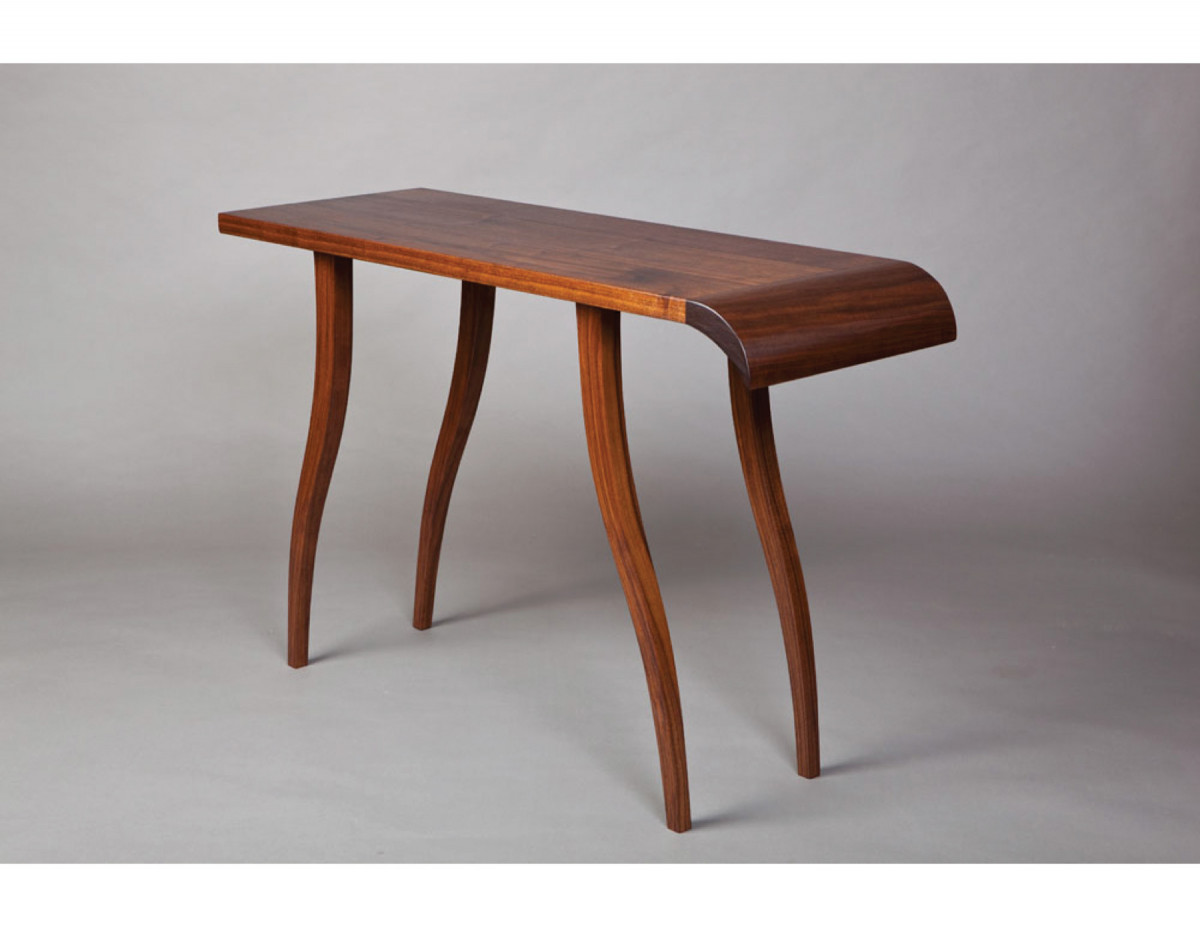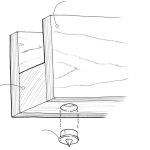We may receive a commission when you use our affiliate links. However, this does not impact our recommendations.

Whenever I admire a fellow woodworker’s finished piece of furniture, I never ask how they did this or that because, quite simply, I am afraid they are going to tell me. Listening to someone describe how they accomplished a difficult or clever woodworking feat is, for me, like listening to someone recount their dream: I just keep waiting for the part where they tell me they woke up and it’s over.
This sounds horrible, I know. The problem, however, is that more often than not, I simply can’t follow what they’re saying, despite being a woodworker for 10 years and having been taught by amazing, accomplished teachers at Cerritos College inNorwalk, California.
What I discovered as I progressed through those classes is that I have notable problems with spatial visualization. This means that I cannotmentally visualize advanced concepts or techniques or objects in three dimensions. Consequently, a woodworker may as well be speaking in Mandarin when they try to explain anything complicated to me because I just can’t see it in my mind. Unfortunately the confused look on my face is often mistaken for intense interest, spurring the maker on to greater detail.
This limitation was not evident in the early weeks of my first class, Intro to Woodworking. In fact, as a journalist, I was in my element with note taking while my teacher told us about the properties of wood and the jobs of the machines. And the math! Finally, the haunting question of my youth — “When will I ever need to multiply or divide fractions in real life?”— was answered: When I am 53 and take up woodworking!
But my problem became apparent rather quickly when we moved into the shop for the working part of Intro to Woodworking. I was flummoxed, for example, when the teacher asked, “In which direction should you feed the wood into the bit on the router table?” I couldn’t picture it until it was my own wood and just me at the router table. Then I could manually turn the (unplugged) router bit and see it against the wood to understand what feeding it against the rotation of the cutter meant.
As I took more advanced classes with increasingly sophisticated plans, I became a slower woodworker and people would teasingly accuse me of overthinking things. No, I was merely trying to think. I didn’t produce sloppy work but it could take me a comparatively enormous amount of time to achieve what others could simply dash off in the shop.
This experience has rattled my self-image, but the takedown of my ego has been cushioned by the knowledge that I have done fairly well in life with my career and other pursuits. This, in turn, leads me to think about all the young kids in school for whom learning doesn’t come naturally for one reason or another. What must it be like to start off in life knowing that you are a “slow” learner compared to your friends? Especially when you have no other measure of achievement…because you are five.
Woodworking is a hobby for me. Despite being a slow learner, I love it and I have the option of walking away from it — something you can’t do when you are a child who needs to learn how to read and write and do math. While it is commonly understood that woodworking is always a humbling endeavor, I have noticed that some of us are more constantly humbled by it than others. Thus I have gained deep empathy for all kids who struggle mightily to learn.
And yet sometimes when I come home from school, and my non-woodworking husband asks me how my day went, I will get all revved up as I explain the technical travails that I encountered. A glazed look will come into his eyes and in the ultimate irony, I am oblivious to it until he stops me with, “Marci! I don’t know what you’re talking about!” Ah, I understand.
Marci Crestani is the co-author with Brian Miller of The Art of Coloring Wood: A Woodworker’s Guide to Understanding Dyes and Chemicals.
Here are some supplies and tools we find essential in our everyday work around the shop. We may receive a commission from sales referred by our links; however, we have carefully selected these products for their usefulness and quality.









